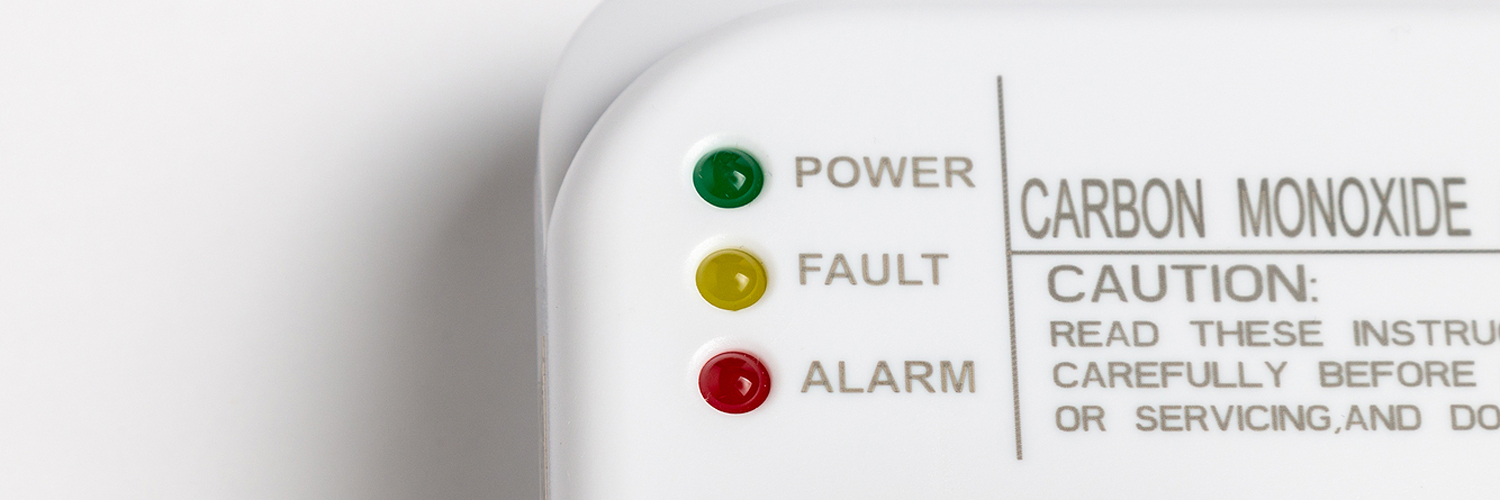Many household dangers come with obvious warning signs—it’s typically easy to see and smell smoke, and gas has a definite odor. That’s not the case with carbon monoxide, however, which is completely invisible and odorless…and can be deadly if not detected in time. That’s why it’s so important to know about the dangers of carbon monoxide and what you can do to keep yourself and your family safe.
Why is Carbon Monoxide So Dangerous?
Carbon monoxide is a poisonous gas, and if it starts to build up in your home, the results can be devastating. When we breathe in too much of this gas, our bodies replace the oxygen in our bloodstream with carbon monoxide, which can lead to serious tissue and organ damage and, potentially, death. According to the CDC, at least 420 Americans die every year from carbon monoxide poisoning, and another 100,000 people are sent to the emergency room.
The Source of Carbon Monoxide Leaks
Carbon monoxide leaks typically fall into one of two main categories:
- Gas-powered appliances. Most gas-powered appliances, such as stoves, water heaters, or laundry units are perfectly safe…IF they’re running the way they should be. If they’re faulty or poorly maintained, however, they could potentially release carbon monoxide into your home.
- Lack of ventilation. Do you start your car with the garage door closed? Do you use a charcoal grill inside when the weather is bad? Do you ever neglect to open the flue or check it for blockages when you use your fireplace? These are just a few examples of improper ventilation that can lead to a fatal buildup of carbon monoxide in your home.
The Signs of Carbon Monoxide Poisoning
According to Penn Medicine, some of the symptoms of carbon monoxide poisoning include feeling dizzy, lightheaded, drowsy, or confused. You also might have trouble breathing or experience nausea or chest pains. These are just a few examples of the signs to watch out for, so be sure to click on the link above for more information. And don’t forget to pay attention to your pets—they often get sick from carbon monoxide before humans do, so don’t ignore it if they’re behaving strangely. It could be a sign that you’re also in danger.
What to Do If You Have Carbon Monoxide Poisoning
If you think you or someone you’re with has carbon monoxide poisoning, get everyone to fresh air and call 911 or Poison Control (1-800-222-1222) immediately. Penn Medicine includes more info on the protocol here.
How to Protect Yourself from Carbon Monoxide
Install Carbon Monoxide Detectors
Carbon monoxide detectors are small, they’re affordable, and they just might save your life. The EPA explains more here, but in summary, you’ll want to install detectors on each floor of your home, ensuring one is placed near each of your sleeping areas. You also need to make sure they’re in good working condition, so check the batteries, test the detector regularly (most detectors should have a “test” button on them), and replace the detector with a new one every few years.
Make Sure You All Appliances Correctly
Always follow your appliances’ instructions to the letter and heed any warnings. For example, camping stoves and outdoor grills are for outdoor use only. It can be tempting to drag them inside when it’s raining or cold out, but that can be a fatal mistake. Similarly, no matter how cold the temp is outside, ALWAYS open your garage door when you’re running your car. And never, ever use your oven or stove to heat up your home.
Maintain Appliances
Not only will maintaining your appliances properly help prolong their lives, it could help to save YOUR life. Pay special attention to appliances that burn natural fuels, like gas, propane, wood, or charcoal. It’s crucial to ensure they are installed correctly, run properly, and remain unobstructed and ventilated. Even a small blockage or defect can end up being a really big deal.
Talk to a Professional
This article is meant to serve as an overview and to give you the basics on the dangers of carbon monoxide. But there is much more information out there about how to keep yourself and your family safe. It’s always a good idea to talk to a professional about carbon monoxide prevention and safety. In addition to installing carbon monoxide detectors, there are companies that will come to your home to test for carbon monoxide and make any necessary recommendations.
Carbon monoxide kills hundreds of people each year and sends even more to the hospital. And since this gas is completely odorless, it’s important to be proactive about detection. Make sure you install carbon monoxide detectors, use all appliances and fuel-burning gadgets as directed, and keep on top of maintenance. And as always, Appel is here to help—reach out today for more advice from our certified professionals.
